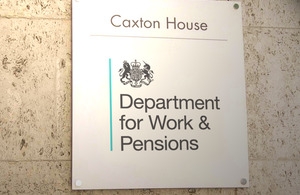A new Pensions Bill published yesterday spells the death knell for badly run Master Trusts, an analyst says.
Details were outlined by the Government for a robust regulatory framework for master trusts to protect savers.
All Master Trusts will now require authorisation with the Pension Regulator.
The Pensions regulator will be able to impose penalties for non-compliance. This includes a fixed penalty of up to £50,000 and an escalating daily penalty of up to £10,000.
The Bill sets out 5 key criteria where schemes must demonstrate compliance and will apply to both new and existing Master Trusts.
The Pensions and Lifetime Savings Association said it has been too easy to set up a master trust - a scheme often used by employers to enrol their staff automatically - and there was insufficient control over the quality and sustainability of schemes.
Savers may lose money if a master trust fails as their funds could potentially be used to pay for the wind-up of the scheme, the body said.
Nathan Long, a senior pension analyst at Hargreaves Lansdown, said: ‘This is the death knell for badly run Master Trusts, crucially driving up the levels of protection for members.
“This legislation looks to address the vulnerability that had existed within Master Trust regulation up until now and this means the cost of wind-up should not fall onto members.’
Joanne Segars, chief executive, Pensions and Lifetime Savings Association, said:
“Master trusts underpin the success of automatic enrolment which has seen millions of new savers join workplace pensions.
“Public confidence in automatic enrolment has been hard-won and we must retain it – stricter regulation of master trusts will help achieve this.”
Other changes include checks to make sure persons involved in the running of the scheme are fit and proper and that the scheme is financially sustainable.
Fiona Matthews, MD of LifeSight, Willis Towers Watson’s master trust, said the plans will make it much easier for employers and consumers to have confidence in master trust providers “at a time when their popularity is exploding”.
She said: “The main problem the Regulator is trying to tackle is a small number of disreputable providers, operating at the margins of the industry, who may be taking advantage of new auto-enrolment requirements to persuade small and medium sized businesses to place their employees retirement savings in vehicles that are poorly governed and potentially unsafe. The new regulation may send these providers into insolvency, with no guarantee that those member’s savings will be protected from the wind-up costs.
“The Pensions Regulator therefore needs to make sure that these members are protected while also raising the minimum standard for entry into the market.”
Paul McBride, head of governance for Capita Employee Benefits’ Atlas Master Trust, said greater protection to master trust scheme members through tighter regulations is to be welcomed but outlined an area he feels has failed to be addressed.
He said: “The Bill does not deal with the well aired problems around bulk transfer certification in a DC environment. If legislation won’t resolve this, hopefully sensible debate can.
“When a bundled outcome is the inevitable trajectory, how is it appropriate for an actuary to compare unbundled and bundled reductions in yield? The one option that won’t be on the table is the unbundled status quo – so why is that the starting position?”

